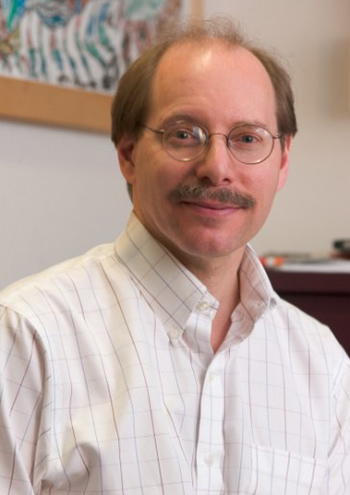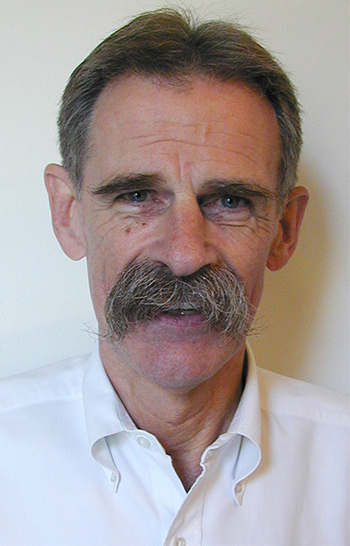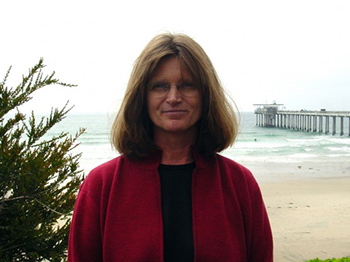
Three UC San Diego Professors Elected to National Academy of Sciences
By:
- Kim McDonald
Published Date
By:
- Kim McDonald
Share This:
Article Content
The National Academy of Sciences today elected three professors at the University of California, San Diego to membership in the prestigious National Academy of Sciences, one of the highest honors bestowed on U.S. scientists and engineers.
Peter J. Novick, professor of cellular and molecular medicine and George Palade Endowed Chair; Nicholas C. Spitzer, Distinguished Professor of Biology; and Nancy Knowlton, adjunct professor of marine biology at Scripps Institution of Oceanography; were among the 84 new members and 21 foreign associates elected to the academy today “in recognition of their distinguished and continuing achievements in original research.”

Peter J. Novick
They join 91 current members of the UC San Diego faculty who previously had been named to membership in the academy, which was established by Congress in 1863 to serve as an official adviser to the federal government on matters of science and technology.
Major research universities use the number of academy members on their faculty as a benchmark by which to compare the strength of their scientific research and education programs among universities across the nation in different disciplines.
“We are proud that these three distinguished scientists are joining the ranks of other UC San Diego faculty members elected to the National Academy of Sciences,” said UC San Diego Chancellor Pradeep K. Khosla. “These individuals are the world’s recognized leaders in their respective fields and their presence on our campus is confirmation of the quality of our faculty and the excellence of our research university.”
Novick’s groundbreaking work in the field of cell biology has contributed to a novel understanding of internal cellular transportation systems. He joined UC San Diego School of Medicine in 2008, when he was named the George E. Palade Endowed Chair of Cellular and Molecular Medicine. His research combines genetics and cell biology in yeast to investigate mechanisms that regulate membrane trafficking along the secretory pathway, a series of steps used to move proteins out of a cell. Membrane traffic is required for many essential functions and its regulation is directly relevant to a broad range of human diseases including cancer, diabetes and neural degeneration. His notable accomplishments in the field, including discovery of key proteins involved in membrane trafficking, have had broad implications for cell biology, biochemistry and genetics.

Nicholas C. Spitzer
Prior to coming to UC San Diego, Novick was a professor in the Department of Cell Biology at the Yale University School of Medicine for more than 20 years. He received his Ph.D. from UC Berkeley and is a member of the American Academy of Arts and Sciences.
Spitzer, who is vice chair of the Section of Neurobiology in the Division of Biological Sciences and director of UC San Diego’s Kavli Institute for Brain and Mind, is a renowned expert in understanding how the brain’s circuitry develops and changes into adulthood. His most recent research efforts have been aimed at detailing the role electrical activity plays in the assembly of the nervous system by analyzing the effects of calcium transients on the differentiation of neurons and determining the molecular mechanisms by which they exert these effects.
Spitzer received his Ph.D. from Harvard University and was a postdoctoral fellow at Harvard and University College, London. He joined the UC San Diego faculty in 1972 and has been the recipient of a Sloan Fellowship, a Javits Neuroscience Investigator Award and a Guggenheim Fellowship. He is a fellow of the American Association for the Advancement of Science and a member of the American Academy of Arts and Sciences.
Marine ecologist Nancy Knowlton, founding director of the innovative Scripps Center for Marine Biodiversity and Conservation, or CMBC, is an adjunct professor at Scripps Institution of Oceanography at UC San Diego and the Sant Chair of Marine Science at the Smithsonian National Museum of Natural History.

Nancy Knowlton
CMBC was launched in May 2001 through Knowlton’s vision of a center that would forge new ground in scientific discovery and contribute to solutions relevant for the environment and society. To address rising threats such as pollution, overfishing and climate change, the center has been rooted in biological and ecological sciences and forges new links with faculty and students in the social sciences, such as economics.
Today, the center that Knowlton envisioned has exceeded expectations. From the coast of California to Baja California to uninhabited islands in the Central Pacific Ocean, CMBC scientists are making discoveries important not only for science but for the global community. CMBC-trained students continue to forge ahead with new science and contribute to marine conservation from positions in state and federal government and non-governmental organizations.
The National Academy of Sciences is a private organization of scientists and engineers dedicated to the furtherance of science and its use for the general welfare. It was established in 1863 by a congressional act of incorporation signed by Abraham Lincoln that calls on the Academy to act as an official adviser to the federal government, upon request, in any matter of science or technology. The academy has 2,252 active members. Among its renowned members are Albert Einstein, Robert Oppenheimer, Thomas Edison, Orville Wright, and Alexander Graham Bell. Nearly 200 living academy members have won Nobel Prizes. Additional information about the academy and its members is available online at http://www.nasonline.org
Share This:
You May Also Like
Stay in the Know
Keep up with all the latest from UC San Diego. Subscribe to the newsletter today.


